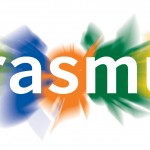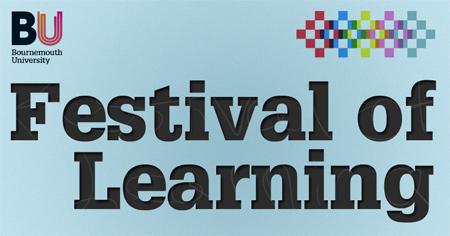At the most recent meeting of the Health, Wellbeing and Ageing Research, we discussed how the Ageing Strand of this theme might be developed along the principles of a community of practice (Wenger et al., 2002, 2006). Here is a summary for wider scrutiny, comment, critique and eventually consensus on how we can together move this strand forward.
The Philosophy
A community of practice (COP) is a “a group of people who share a concern or a passion for something they do and learn how to do it better as they interact regularly” (Wenger, 2006). Our passion is Health and Wellbeing- a salutogenic rather than pathogenic approach to health, social care and related fields. For many of us, it is the application of this to the Ageing Process and managing older age that holds our particular interest and area of expertise. The central philosophy of a COP is that members learn with and from each other. The rationale is two fold: firstly learning is linked with member wellbeing (specifically cognitive wellbeing): secondly, learning and wellbeing jointly facilitate productivity. In other words, our activities and outcomes/outputs will and do flow from communities of this type. (Wenger et al, 2002)
Key to the development of a COP such as this one is the “practice” element. Through interacting regularly (at times virtually, at times face to face) we are building relationships and learning better ways of working together (Wenger et al., 2002, 2006). Community members engage in joint activities, helping and learning from each other, sharing information and building relationships. By practicing in this way we are developing what Wenger refers to as a shared repertoire of resources (e.g. a common definition of wellbeing; an understanding of regional, national and global policy on Ageing Well) experiences (appropriate and friendly funding sources), stories, tools (e.g., research methodologies, review techniques), ways of addressing recurring problems (e.g. dealing with ethics, dealing with rejection, holding interviews with people with impaired hearing or mobility issues)—in short a shared practice.
The community can be moved forward practically by following the seven principles of developing a community of practice (Wenger et al., 2002). I concentrate on four here.
1. UP THE EVOLUTION
The development of Health, Wellbeing and Ageing should be an evolutionary process. Members differ widely in interests. Sociologists and engineers rub shoulders. Those interested in clinical trials and phenomenology share the same building! But our differences are not important. What is important is that we share an interest/expertise in Health, Wellbeing and/or older people. Rather than impose our own preconceived structures as to what projects or subgroups should be developed, projects themes are allowed to arise organically and the community’s agenda develops as members engage and disengage. For this to continue, it is essential that members know about each other’s interests and take time to interact and share these. Up to date STAFF profiles and BURO lists managed by our friend BRIAN are key to this as are student staff seminars and conferences. But as with any evolutionary process, it takes time to develop and small steps in the right direction are expected and accepted.
2. OPENING DIALOGUE
Through opening dialogue with those within the university and with external colleagues we are together developing a shared competence in a domain that distinguishes us from, but guides our rules of collaboration with, the range of other networks within the field (e.g. AgeUK, Help and Care, Poole and Bournemouth Borough Council, Research Councils). Creating an open dialogue between members and between members and those outside of the groups is central.. Our social media group pages AGEING at BU is a step in developing these insider and outsider discussions. http://www.facebook.com/#!/groups/106969319443779/. Twitter and much more should follow.. Technical stewards (Wenger,2010) are required to lead the community in maintaining the community through these Web 2.0 technologies, keeping us actively engaging and building internal and external relationships required to maximize our learning. These sites can serve dual purposes and promote our activity but evidence shows that if self promotion overrules the central learning objective of these sites (Terras, 2012), our e -profile withers and die. A balance is essential
3. DIFFERENT LEVELS OF PARTICIPATION
Community members can engage in the theme at three different levels of participation: as the core convening group, as active participating members or on the periphery watching developments. All levels are acceptable and learning about health, wellbeing and its application to Ageing can occur in any of the three. We strive however to introduce mechanisms whereby movement between core, active and peripheral participation can occur. Active participation should be encouraged but not forced, “building benches on the sidelines” for members to sit and watch until they are confident to move to the centre and take more active roles within the group (Wenger et al., 2002). An ethos of mentoring is fostered not necessarily on a one to one basis, but as a group philosophy where active and core members are cogent of the need for inclusivity and for offering opportunity to peripheral members should they wish to engage.
4. THE COMMUNITY MUST HAVE VALUE FOR ITS MEMBERS
Engagement is also encouraged by making explicit the value of community membership. From personal experience, being part of a community has offered us all opportunities we would not have accessed if we had not been members. The social capital generated has lead to individuals making connections to networks to which some members had links but others not (connections to external networks come from whom we know not necessarily what we know). We have been able to draw on the skills of others, (for example, the researchers amongst us have gained insight into curriculum development, faculty development and health care policy). The network has enabled us to submit bids that are cross school and cross institutional which we hope is reflected in their quality arising from this cross fertilisation of ideas and disciplines. Most importantly, we have connected to like-minded individuals and reduced our research isolation.
Food for thought. I would welcome thoughts on whether this fits with colleagues’ vision for the Health, Wellbeing and Ageing theme. I acknowledge the input of already successful COPs into these thoughts specifically IN-2-theory and GRIN members as well as good thoughts and discussion on this topic from the HSC Health and Wellbeing Community leadership.
Sarah Hean
REFERENCES
Terras, M. (2012) The verdict: is blogging or tweeting about research papers worth it? Available at: http://blogs.lse.ac.uk/impactofsocialsciences/2012/04/19/blog-tweeting-papers-worth-it/
Wenger, E., White, N.and Smith, J.D., (2010) Digital Habitats , Portland: CPSquare
Wenger, E., McDermott, R., & W.M. Snyder. (2002). Cultivating Communities of Practice A Guide to Managing. Boston: Harvard Business Press.
Wenger, Etienne. (2006). Communities of Practice: a brief introduction, 1-6. Retrieved from http://www.ewenger.com/theory/communities_of_practice_intro.htm
 Arthritis Research UK seeks to fund a number of projects aimed at investigating innovative approaches to enhance the education of health care professionals and the public on musculoskeletal disorders. They are pleased to issue a call for expressions of interest in research in this area. This call will be in relation to particular questions and research topics – please make sure you read the document, Call for research proposals in the education of health professionals and the public 2012, before you apply.
Arthritis Research UK seeks to fund a number of projects aimed at investigating innovative approaches to enhance the education of health care professionals and the public on musculoskeletal disorders. They are pleased to issue a call for expressions of interest in research in this area. This call will be in relation to particular questions and research topics – please make sure you read the document, Call for research proposals in the education of health professionals and the public 2012, before you apply.








 Ground and Structural Engineering Research Challenge Call for Proposals (PDF 76KB)
Ground and Structural Engineering Research Challenge Call for Proposals (PDF 76KB)

















 New CMWH paper on maternity care
New CMWH paper on maternity care From Sustainable Research to Sustainable Research Lives: Reflections from the SPROUT Network Event
From Sustainable Research to Sustainable Research Lives: Reflections from the SPROUT Network Event REF Code of Practice consultation is open!
REF Code of Practice consultation is open! ECR Funding Open Call: Research Culture & Community Grant – Apply now
ECR Funding Open Call: Research Culture & Community Grant – Apply now ECR Funding Open Call: Research Culture & Community Grant – Application Deadline Friday 12 December
ECR Funding Open Call: Research Culture & Community Grant – Application Deadline Friday 12 December MSCA Postdoctoral Fellowships 2025 Call
MSCA Postdoctoral Fellowships 2025 Call ERC Advanced Grant 2025 Webinar
ERC Advanced Grant 2025 Webinar Update on UKRO services
Update on UKRO services European research project exploring use of ‘virtual twins’ to better manage metabolic associated fatty liver disease
European research project exploring use of ‘virtual twins’ to better manage metabolic associated fatty liver disease